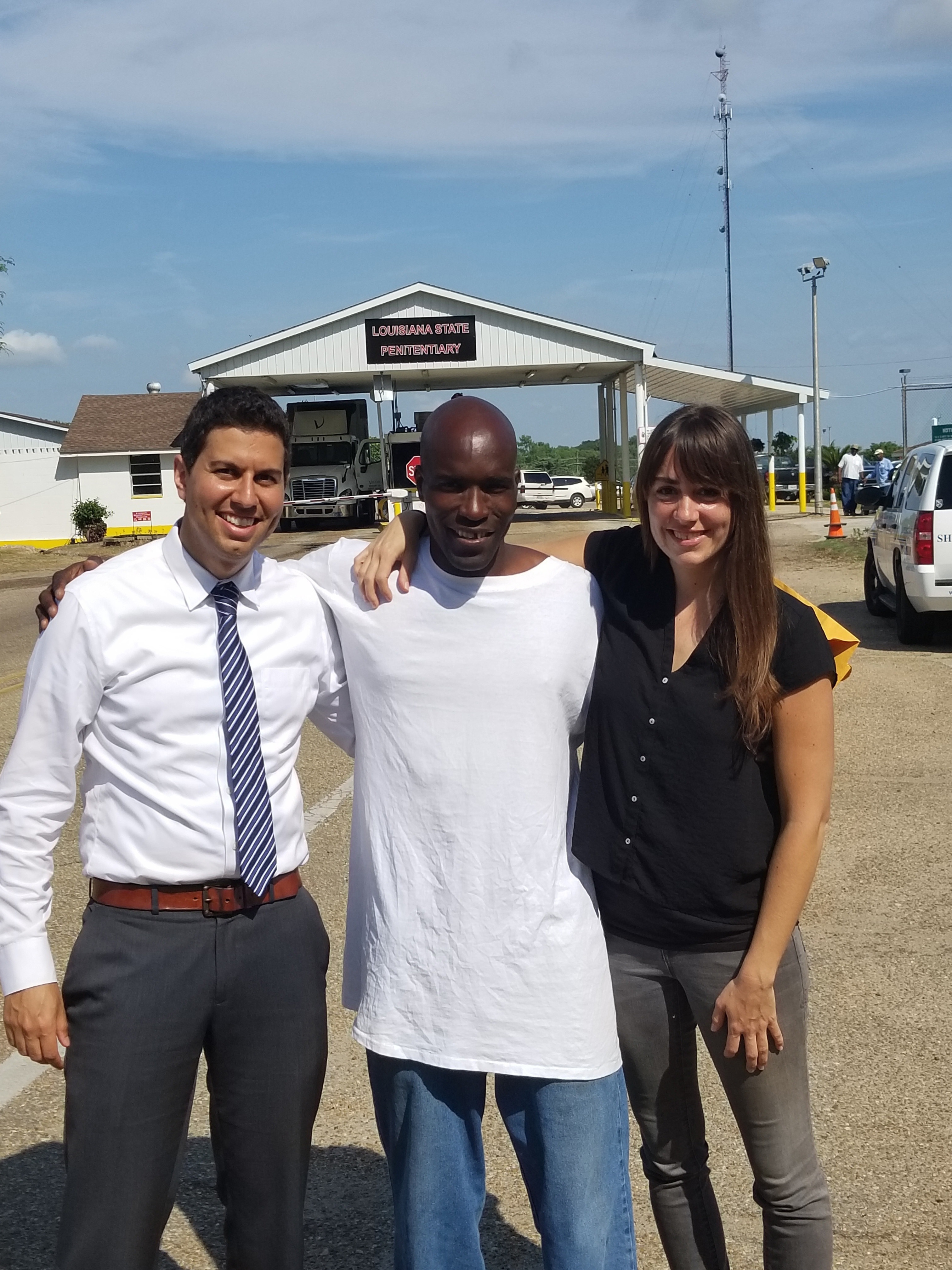
By JANET McCONNAUGHEY
Associated Press
A mentally disabled man walked free Tuesday after 20 years in prison for a killing his attorneys say he didn’t commit, under a plea agreement that blames him for obstructing justice by falsely confessing to the crime. In exchange for his freedom, Corey Williams accepted a deal that short-circuits a potential U.S. Supreme Court review and requires him to drop all claims against the state of Louisiana, which initially sentenced him to death.
“Moments ago, I had the honor of walking Corey Williams out of prison,” attorney Amir Ali said in a tweet Tuesday morning. “He spent the last 20 years there, after being wrongfully convicted as a 16 year old child.” Police found Williams hiding under a sheet on a couch at his grandmother’s house after Jarvis Griffin was killed after delivering a pizza to another house in 1998. Williams initially denied killing Griffin, but changed his story after police questioned him through the night. “His confession was brief, devoid of corroborating details,” his lawyers wrote in their March 2 petition to the U.S. Supreme Court. “Having just assumed responsibility for a homicide, Corey told the officers, ‘I’m tired. I’m ready to go home and lay down.'”
Defense attorneys said there wasn’t any physical evidence linking Williams to the killing, and accused prosecutors of withholding “staggering” evidence of innocence, in part by sharing only summaries of evidence involving other suspects. As it turned out, witnesses saw several older men steal money and pizza from Griffin, and saw Williams running from the house alone with nothing in his hands after the shooting, according to his lawyers. One of the older men, Chris Moore, was the only witness who identified Williams as the shooter. Fingerprints found on the murder weapon belonged to one of the other older men, and the victim’s blood was found on clothing worn by a third older man, according to Williams’ lawyers. Williams’ lawyers said the prosecutors’ summaries were falsified.
This was one of the reasons cited by a group of 44 former prosecutors and Justice Department officials, including former U.S. Attorney General Michael Mukasey, in a legal brief filed recently urging the U.S. Supreme Court to review the case. The plea “puts an end to Corey Williams’ efforts to get the United States Supreme Court to reverse his conviction,” wrote John Andrew Prime, spokesman for Caddo Parish District Attorney James Stewart Sr., in a news release emailed Tuesday. Williams signed his plea bargain in inch-high printing with big circles over the i’s. His lawyers say that before the shooting, Williams was hospitalized for extreme lead poisoning, still sucked his thumb and frequently urinated on himself. His disabilities were cited by a district court judge in overturning his death sentence in 2004.
Williams also pleaded guilty Monday to manslaughter. In the agreement, he admits being present when Griffin was killed, that he aided and abetted the shooting, and illegally possessed a stolen firearm. He also agreed that he obstructed justice by removing evidence from the crime scene, and that he “provided a false inculpatory statement to police.”
Williams, now 36, also agreed not to raise any legal claims or seek compensation from the state or anyone else in a long list of people and agencies, including any former district attorney. Because of that, his lawyers hope to raise $10,000 to help him get a new start on life. “Given the prospect of years more time in prison fighting his conviction, and the uncertainty of justice in the courts, … Corey pled guilty to lesser offenses in an agreement that allowed him to walk out of prison,” his lawyers wrote on a crowdfunding site.
State District Court Judge Katherine Dorroh vacated Williams’ murder conviction and sentenced him to 20 years for manslaughter, with credit for time served. Prime said the judge also suspended a seven-year sentence for obstructing justice, putting Williams on supervised probation for three years.



















